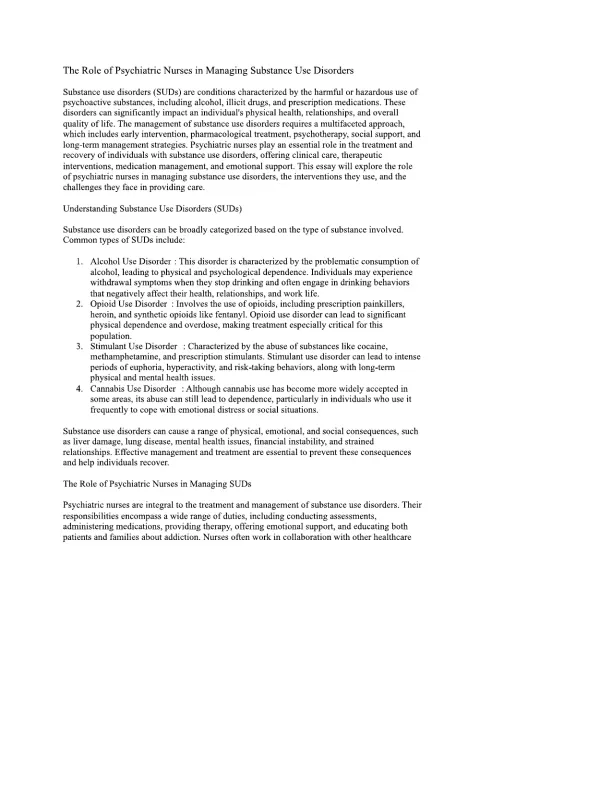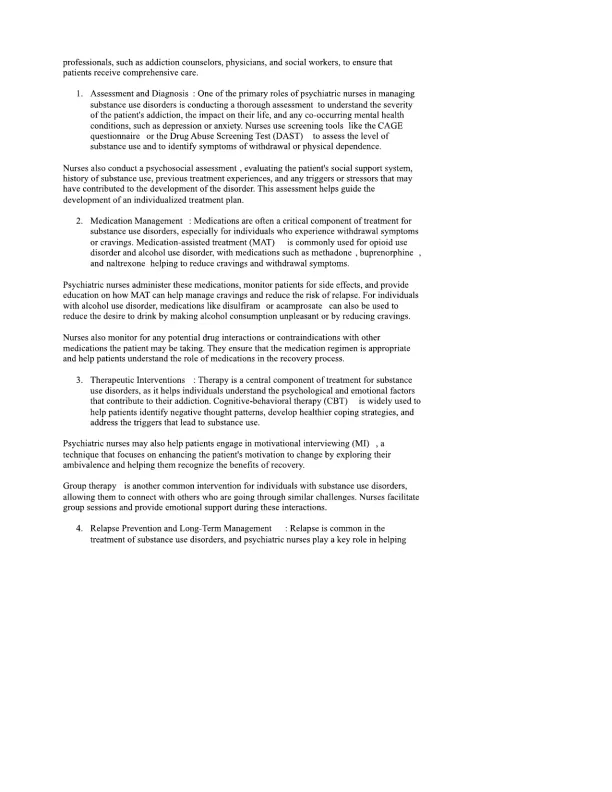Page 1

Loading page image...
Page 2

Loading page image...
A mental health and addiction care site focused on the role of psychiatric nurses in managing substance use disorders, highlighting nursing interventions, therapy, medication management, and collaborative recovery strategies for affected individuals.
Loading page image...
Loading page image...
This document has 4 pages. Sign in to access the full document!